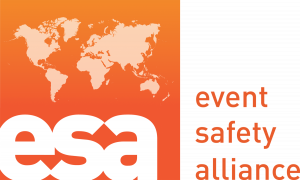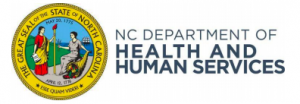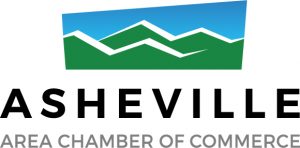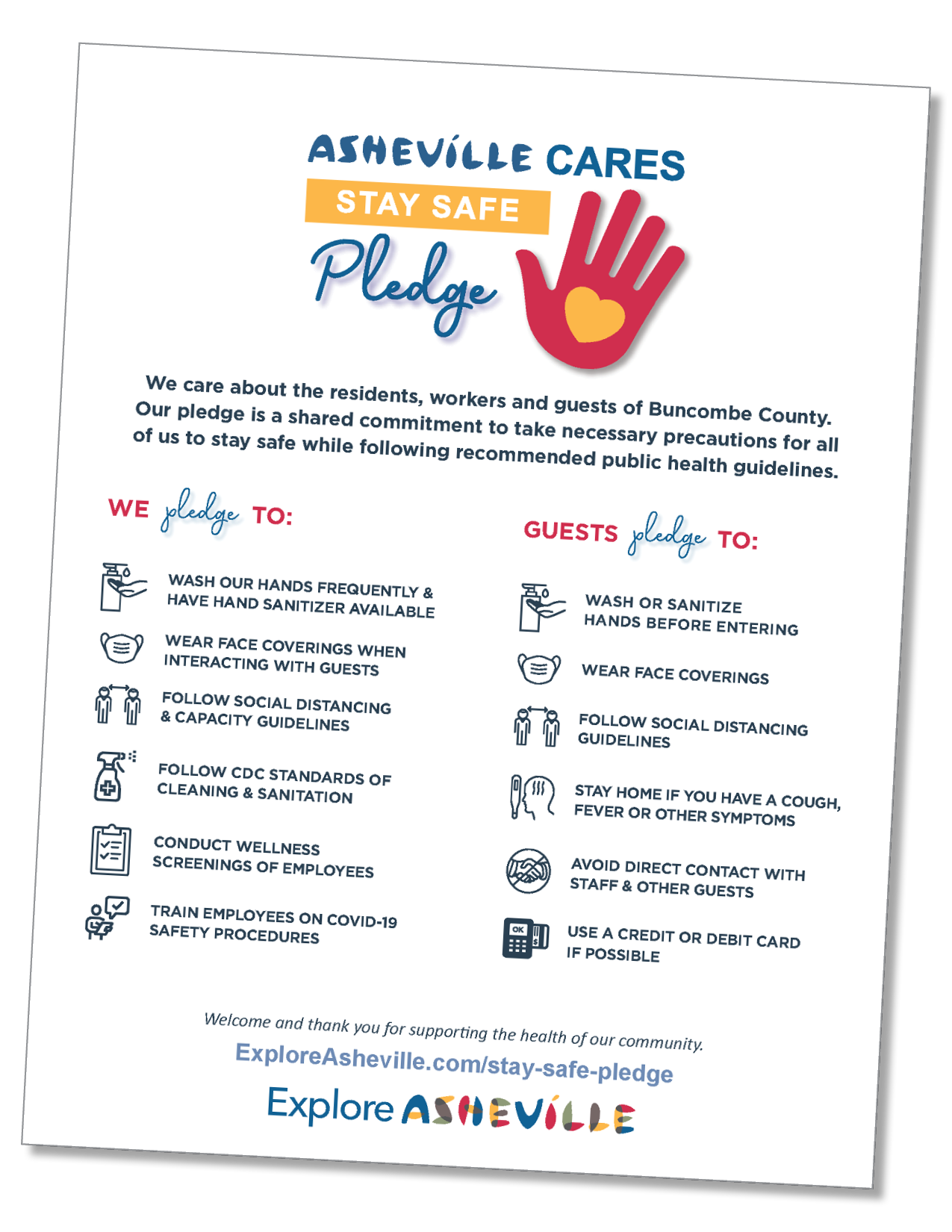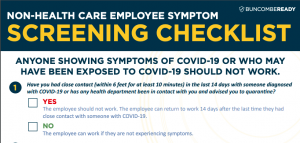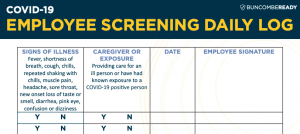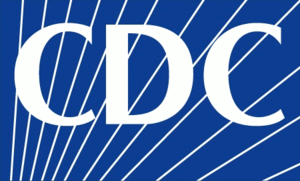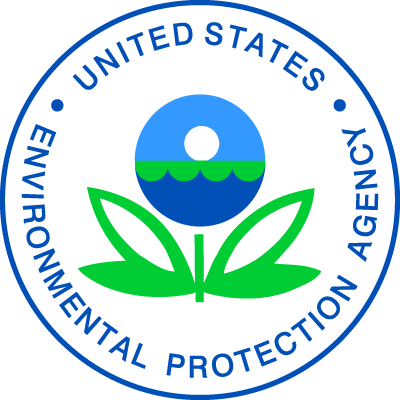Reopening Resources
Signage
Signage is required. You are welcome to use these or create your own.
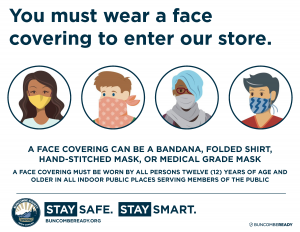
Phase 2 Materials for Business Operations
As we ease into the Stay Home, Stay Safe Phase 2, Buncombe County Public Health has provided public health messaging and guidance for industry and local businesses to use in their operations. Please click the links below to download printable files.
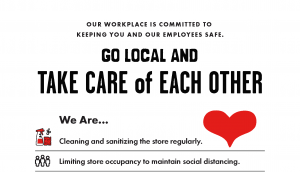
Customer Education & Safety
Screening customers before they arrive at the place of business is the best way to reduce the risk of transmission. This means having information posted on your website and signage posted on your place of business telling customers not to enter if they are experiencing any symptoms of COVID-19.
Please note: temperature checks, while important, are only one tool in an effective screen method. COVID-19 can remain dormant and some individuals who have contracted COVID-19 will not necessarily experience fevers.
Other Considerations
Buncombe County is also recommending that you:
- If making appointments, have individuals wait in their vehicles until ready.
- Have greeters near the entrance and have an employee open and close doors for individuals.
- Displaying consistent and easily visible signage throughout the facility providing guidance for social distancing and proper PPE use.
- Have designated hours for seniors and other high-risk populations.
- Develop and use systems that allow online, email, or phone orders, no-contact curbside or drive through pick-up or home delivery, and contact-free checkout.
- Provide routing assistance through aisles in the stores.
Anti-Discrimination
Anti-discrimination laws, including the Americans with Disabilities Act (“ADA”) and the Rehabilitation Act, continue to apply during the COVID-19 pandemic. These laws do not interfere with, or prevent employers from following, the guidelines and suggestions issued by the CDC or state and local public health authorities regarding COVID-19. Supplement guidance for employers can be found on the EEOC website.
Cash Payments
Payment transactions should be handled with extreme caution. Cash payments should be allowed for those without other means.
Business Notifications
Businesses will not be reported but the manager may be contacted by a communicable disease nurse if employees or customers have been in close contact with a positive case. This is called contact tracing and those who have been identified as close contacts – will be contacted by a Communicable Disease Nurse. This follow up call is a way to make sure that everyone is as safe as possible and helps us to contain the outbreak to the best of our ability.
Wear
Masks
Wearing cloth face coverings is a public health measure that people should take to reduce the spread of COVID-19- especially if you are not able to maintain physical distancing. Please note that the “face coverings” differ from “face masks” (e.g., N95, KN95). Surgical masks and N95 respirators are in short supply and should be reserved for healthcare workers or other medical first responders, as recommended by CDC guidance. Additionally, cloth face coverings are washable and can be reused.
The County has aligned with Federal and State guidance which does not mandate the use of face coverings in public. The current recommendations provided by Buncombe County strongly recommend that members of the general public wear cloth face coverings in public settings. Children above the age of 2 years old are recommended to wear cloth face coverings. Stay up to date on the latest guidance at buncombecounty.org/covid19/
Owners and operators are able to set their own standards as long as they are stricter than the state and Buncombe County recommendations. In every decision, businesses should exercise equity, fairness, and consistency when requiring cloth face coverings.
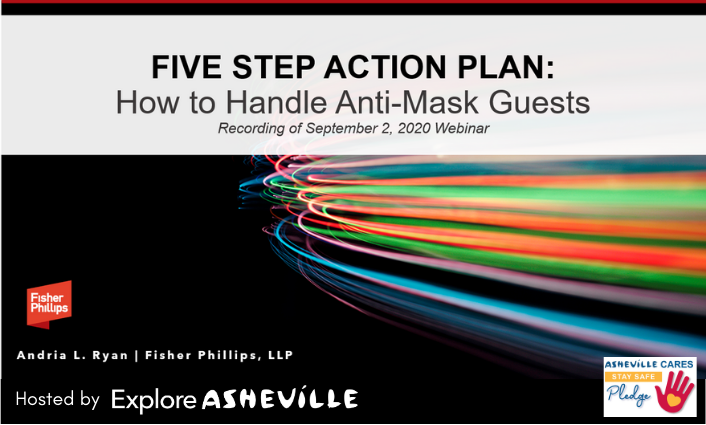
Gloves
Gloves should be used with discretion. The best strategy for hand hygiene is to wash your hands and use sanitizer after any contact with your face, other people, or any high-use surface.
Please note: To keep demand low for our first responders and medical staff, customers/patients should be advised to bring their own cloth face coverings. Businesses are more than welcome to provide any PPE they have in stock. Please note that medical-grade PPE should be reserved for medical professionals and first responders.
Wait
Under Phase, Retail is allowed to operate at 50% capacity. However, patrons should stay 6 feet apart. At point of sale or other high capacity areas it is recommended that you mark off 6 ft intervals for patrons. It is also suggested that, where possible, aisles be marked as one-way to further limit interactions. Customers should be discouraged from sampling or touching merchandise wherever possible.
Waive, instead of shaking hands or hugging, from a safe 6 ft distance.
Both indoor and outdoor gatherings are still limited to no more than 10 people at this time.
Wash
It is recommended that businesses provide hand sanitizer stations whenever possible and handwashing stations, as well as plus soap and hand drying materials at sinks.
Staff Health & Hygiene
Employers should consider a health care provider’s diagnosis of COVID19 made on symptoms alone to be valid as a diagnosis made with a confirmed test. Employers should not require employees reporting COVID-19 infection to present a COVID-19 positive test result before excusing them from work. Employers may ask for the name of the physician providing the diagnosis. Employees must be offered 80 hours of paid sick leave provided by the Families First Coronavirus Response Act (FFCRA). Employees who work fewer hours than 40 hours per week are entitled to emergency paid sick leave on a pro-rata basis. The employer must ask the Public Health Department how to track and advise other employees who may have been exposed to the employee who has COVID-19. It is important to not go ahead and take this step without consulting the Public Health Department.
Workers should stay at least 6 ft away from each other and customers. Under the current Phase 1 orders, you are also required to do a daily health screening of staff. BC recommends staggering shifts, reducing staff capacity, screening staff on a regular basis, practicing social distancing, and wearing proper PPE where possible. It is also recommended to have a plan for isolating workers if symptoms develop, and immediately send symptomatic workers home.
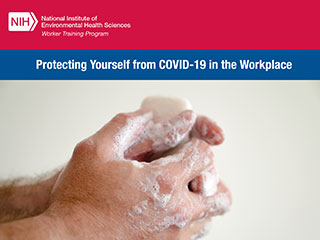
Sanitation
Cleaning, disinfecting, and sanitizing all common areas, high traffic areas, and high-touch surfaces should be completed as often as possible. Any objects that may seem difficult to sanitize should be removed.
General Supplies

Local Hand Sanitizer & Masks
Liability Considerations
While lobbyists are pushing for federal legislation to protect business owners from lawsuits related to COVID-19 exposure, there is currently no legislation in place. To protect yourself and your business it is wise to enact some sort of social contract and waiver. This could be as simple as an agreement between you are your employees stating what you expect from them, what they can expect from you in return, and that as long as you both follow this agreement they waive your right to sue over COVID-19 exposure and illness.
For patrons, this could be signage posted that says by entering the building they agree to follow the posted rules and waive their right to sue, or a disclaimer that says “by purchasing this ticket you agree to…”, “you understand that…”, and “you waive your right to sue over COVID-19 exposure and illness.”
Reopening Guidelines & FAQs


of various sizes, constructs, designs, and missions. We acknowledge that each arts
organization has its unique circumstances while navigating these uncertain times. The
purpose of this guide is to provide recommendations as you craft your organization’s response to the COVID-19 pandemic and develop your plan for reopening to the public. We are all working toward the common goal to keep our patrons, workers, and artists as safe as possible.
